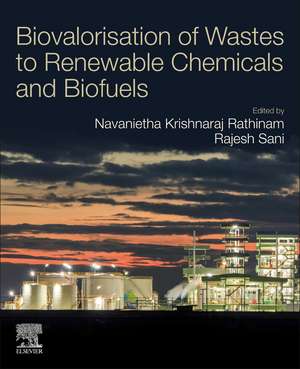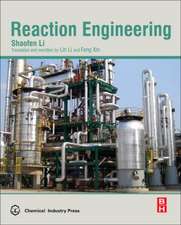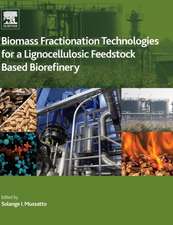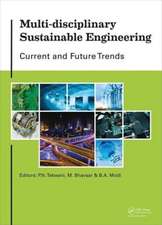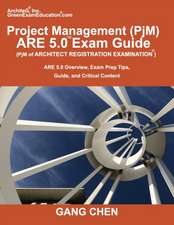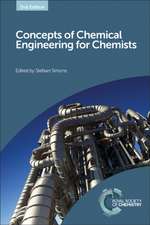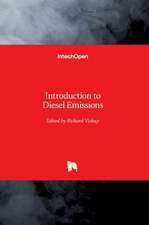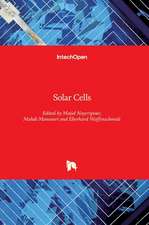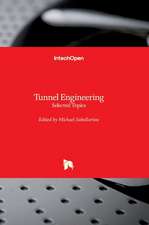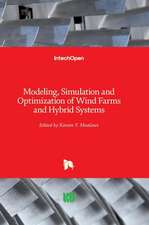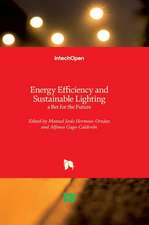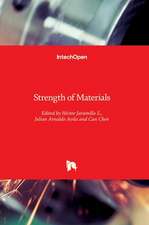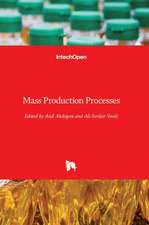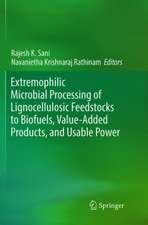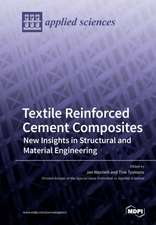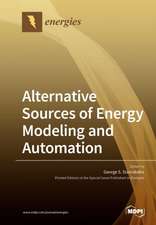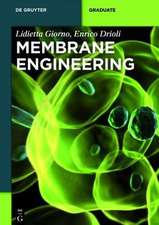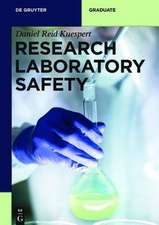Biovalorisation of Wastes to Renewable Chemicals and Biofuels
Editat de Navanietha Krishnaraj Rathinam, Rajesh Sanien Limba Engleză Paperback – 15 oct 2019
Biovalorisation of Wastes to Renewable Chemicals and Biofuels can be used as course material for graduate students in chemical engineering, chemistry, and biotechnology, and as a reference for industrial professionals and researchers who want to gain a basic understanding on the subject.
- Covers a wide range of topics, from the conversion of wastes to organic acids, biofuels, biopolymers and industrially relevant products
- Bridges the gap between academics and industry
- Written in a lucid and self-explanatory style
- Includes activities/quiz/critical questions
Preț: 908.21 lei
Preț vechi: 1268.52 lei
-28% Nou
Puncte Express: 1362
Preț estimativ în valută:
173.84€ • 188.89$ • 146.12£
173.84€ • 188.89$ • 146.12£
Carte tipărită la comandă
Livrare economică 14-28 aprilie
Preluare comenzi: 021 569.72.76
Specificații
ISBN-13: 9780128179512
ISBN-10: 0128179511
Pagini: 422
Dimensiuni: 216 x 276 mm
Greutate: 0.97 kg
Editura: ELSEVIER SCIENCE
ISBN-10: 0128179511
Pagini: 422
Dimensiuni: 216 x 276 mm
Greutate: 0.97 kg
Editura: ELSEVIER SCIENCE
Public țintă
Graduate students in chemical engineering, chemistry and biotechnology; researchers at university and industry entering the field of biovalorizationCuprins
Part 1: Biovalorisation of Industrial Wastes
1. Anaerobic biovalorisation of leather industry solid waste and production of high value-added biomolecules and biofuels
2. Valorization of olive oil industry wastes and production of ethanol and high value-added biomolecules
3. Anerobic treatment of pulp and paper industry waste
4. Biovolarisation of winery industry waste to produce value added products
5. Conversion of Textile effluent waste water to fertilizer using cyanobacteria
6. Anaerobic bioconversion of poultry industry-derived wastes for the production of biofuels and other value-added products
7. The Intertwined Facets of Membrane Technology for Industrial Effluents
8. Biovalorisation of food industry wastes (cheese whey and molasses) to galactosidases by recombinant
Part 2: Biorefinery for Hydrocarbons and Emerging Contaminants
9. Biodesulfurisation of petroleum wastes
10. Microbial leaching of heavy metals from E - waste : opportunities and challenges
Part 3: Biovalorisation of agricultural biomass
11. Recent trends in biorefinery based valorization of lignocellulosic biomass
12. Protein Engineering Approaches for Lignocellulosic Ethanol Biorefinery
13. Biovalorisation potential of Agro-forestry/industry biomass to Lactic acid: Opportunities and Challenges
14. Vermicomposting of organic wastes and the production of vermicompost
15. Microbial Electrolysis cells for converting wastes to Biohydrogen
16. Agro-Based Sugarcane Industry Wastes For Production Of High Value Bioproducts
Part 4: Algal Biorefinary
17. Microalgal Biovalorisation: Conventional and Non-Conventional Approach
18. Integration of wastewater valorization with microalgae for biofuel production
19. Microalgae in Bioelectrochemical Systems: Technological Interventions
20. Bioleaching
21. Membrane separation technologies for downstream processing
1. Anaerobic biovalorisation of leather industry solid waste and production of high value-added biomolecules and biofuels
2. Valorization of olive oil industry wastes and production of ethanol and high value-added biomolecules
3. Anerobic treatment of pulp and paper industry waste
4. Biovolarisation of winery industry waste to produce value added products
5. Conversion of Textile effluent waste water to fertilizer using cyanobacteria
6. Anaerobic bioconversion of poultry industry-derived wastes for the production of biofuels and other value-added products
7. The Intertwined Facets of Membrane Technology for Industrial Effluents
8. Biovalorisation of food industry wastes (cheese whey and molasses) to galactosidases by recombinant
Part 2: Biorefinery for Hydrocarbons and Emerging Contaminants
9. Biodesulfurisation of petroleum wastes
10. Microbial leaching of heavy metals from E - waste : opportunities and challenges
Part 3: Biovalorisation of agricultural biomass
11. Recent trends in biorefinery based valorization of lignocellulosic biomass
12. Protein Engineering Approaches for Lignocellulosic Ethanol Biorefinery
13. Biovalorisation potential of Agro-forestry/industry biomass to Lactic acid: Opportunities and Challenges
14. Vermicomposting of organic wastes and the production of vermicompost
15. Microbial Electrolysis cells for converting wastes to Biohydrogen
16. Agro-Based Sugarcane Industry Wastes For Production Of High Value Bioproducts
Part 4: Algal Biorefinary
17. Microalgal Biovalorisation: Conventional and Non-Conventional Approach
18. Integration of wastewater valorization with microalgae for biofuel production
19. Microalgae in Bioelectrochemical Systems: Technological Interventions
20. Bioleaching
21. Membrane separation technologies for downstream processing
